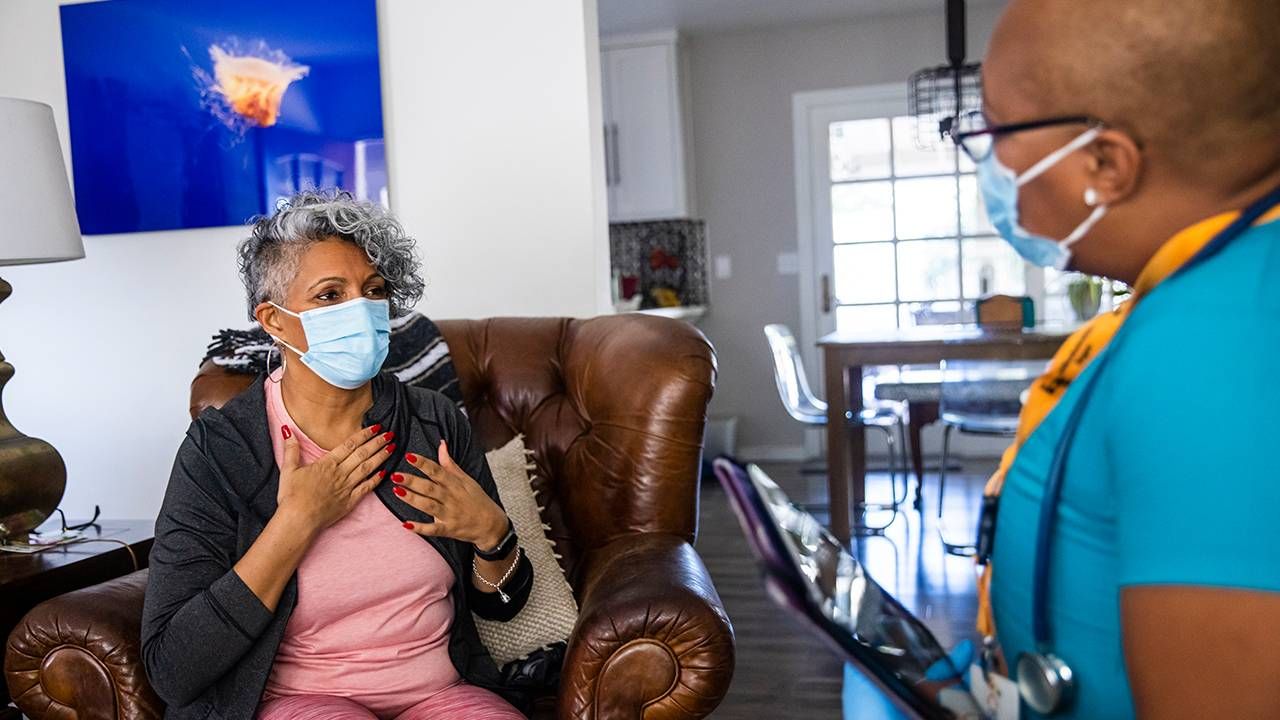The State of Alzheimer’s 2021: Stress, COVID-19, Disparities and Racism
A new Alzheimer’s Association report echoes the past year’s themes
Recalling being a sandwich-generation caregiver to two in-laws with dementia and four kids, Maria Carrillo says, "I can't begin to imagine how stressful it would have been to do that in the pandemic."

The just-released annual state-of-the-disease report from the Alzheimer's Association, where Carrillo is chief science officer, highlights how the past year's crises reflect challenges for those touched by the disease.
"We've got to do a better job of understanding the backgrounds and cultures of different under-represented ethnic populations to make them part of our great momentum with Alzheimer's."
Along with a discussion of COVID-19, "2021 Alzheimer's Disease Facts and Figures" includes a special report, "Race, Ethnicity and Alzheimer's."
Based on two national surveys, it's the "deepest dive ever done" by the association into racial and ethnic perspectives, Carrillo says. For the first time, Native Americans and Asian Americans were included. (The Alzheimer's Association surveyed 2,491 U.S. adults and 1,392 Alzheimer's and dementia caregivers age 50 and older.)
"Between COVID and social unrest, a lot of systemic racism has been uncovered and health care is no exception," Carrillo says.
Some 6.2 million Americans 65 or older (one in nine) are now living with Alzheimer's, up from 5.8 million in the 2020 report.
Among the special report's findings:
- Two-thirds of Black Americans (66%) believe it’s harder for Blacks to get excellent care for Alzheimer’s disease or other dementias. Roughly two in five Native Americans (40%) and Hispanic Americans (39%) also believe their own race or ethnicity makes it harder to get care, as do about one-third of Asian Americans (34%).
- Fewer than half of Black (48%) and Native Americans (47%) surveyed felt confident they have access to health care providers who understand their ethnic or racial background and experiences. Only about three in five Asian Americans (63%) and Hispanics (59%) feel confident.
- Barely half (53%) of Black Americans believe a future cure for Alzheimer’s will be shared equally regardless of race, color or ethnicity. By comparision, 75% of white Americans believe that.
Bridging Cultural Gaps
"We've got to do a better job of understanding the backgrounds and cultures of different under-represented ethnic populations to make them part of our great momentum with Alzheimer's," says Carl V. Hill, the Alzheimer's Association's chief diversity, equity and inclusion officer.
"People of color clearly want health care providers, from the greeters to the nursing staff to the technicians to the doctors, who look like them and understand their backgrounds."
Stigma around the disease, Hill says, is a large part of why more than half of nonwhite Americans in the survey believe that significant loss of memory or cognitive abilities is a "normal part of aging." (It's not.)
Hispanic, Black and Native Americans are also twice as likely as whites to say they would not see a doctor if experiencing memory or thinking problems, even though the former groups are at higher risk for developing Alzheimer's.
Dementia specialists need better awareness of cultural realities that cause more impacted groups to be less likely to seek care, Hill says. And. Hill adds, researchers and those recruiting for clinical trials — which Black Americans express the least interest in of any group surveyed — must better accommodate socioeconomic barriers around transportation and work hours.
More examples: "People of color clearly want health care providers — from the greeters to the nursing staff to the technicians to the doctors — who look like them and understand their backgrounds," Carrillo adds. Brochures from doctors discussing diet could refer to foods more common in Asian or Latin American cuisines, she says.
Using a community-based participatory research model (which deeply involves community members and organizational representatives in research and planning) is a critical way to overcome barriers and build on cultural strengths to accelerate progress, Hill says.
He's building partnerships with community-based organizations that will let the Alzheimer's Association and other groups better engage with under-represented populations — and get the right questions asked.
COVID-19’s Toll
When COVID-19 closed adult day centers, made long-term care facilities off-limits to families and intensified social isolation, emotional distress soared for all, the Alzheimer's Association report notes.
There was also a 16% increase in deaths with dementia in 2020 (42,000), compared to averages over the previous five years, the report notes. (A Feb. 2021 study found that people with dementia are disproportionately at risk for COVID-19 and have worse outcomes, with Black Americans twice as likely to be infected as white people.)
Concerned about implications for those who contracted the virus, the Alzheimer's Association and representatives from more than 30 countries have formed an international consortium to study the short- and long-term consequences of COVID-19 on the brain and nervous system in people of various ages and genetic backgrounds.
Other Highlights
The report also underscored these realities:
- Dementia dominates caregiving. Nearly half of all those who provide unpaid help to an older adult do so for someone with a form of dementia, including Alzheimer's.
- Alzheimer's is especially a women’s disease.Two-thirds of Americans over 65 with Alzheimer’s are women. And two-thirds of dementia caregivers are women. One-third are daughters.
- All ages and life stages are pitching in. Over half of Alzheimer's caregivers are providing assistance to a parent or in-law. One in four are sandwich-generation caregivers, tending to both parents and children. Ten percent are helping a spouse. Thirty percent of dementia caregivers are over 65.
- The Alzheimer's caregiving burden varies. Hispanic, Black and Asian American caregivers of people with dementia indicate greater care demands, less outside help or use of formal services and greater depression than white caregivers.
One aspect of Alzheimer's seems colorblind: Nearly two in three caregivers across all racial and ethnic groups describe caregiving as "stressful." But nearly all (92%) say it's rewarding, too.

Read More

